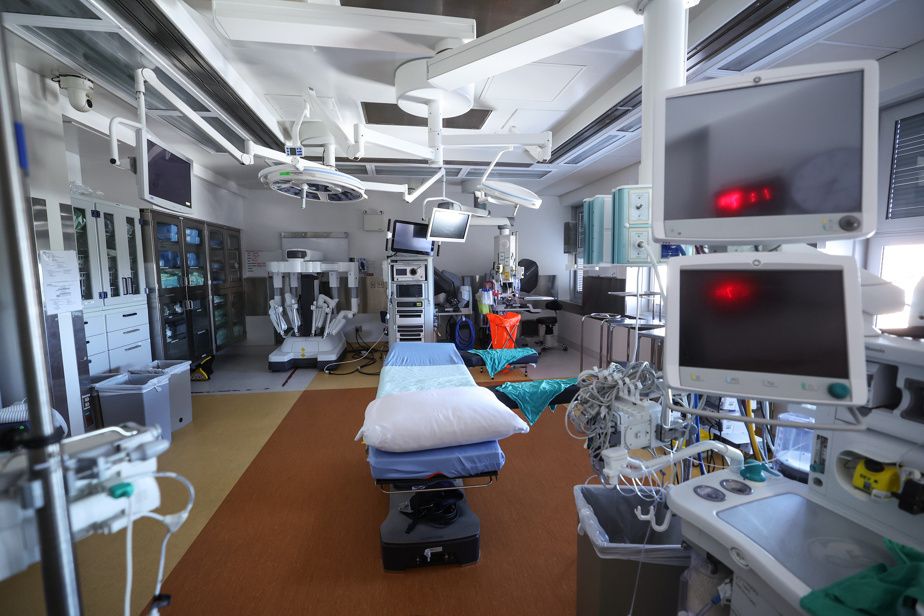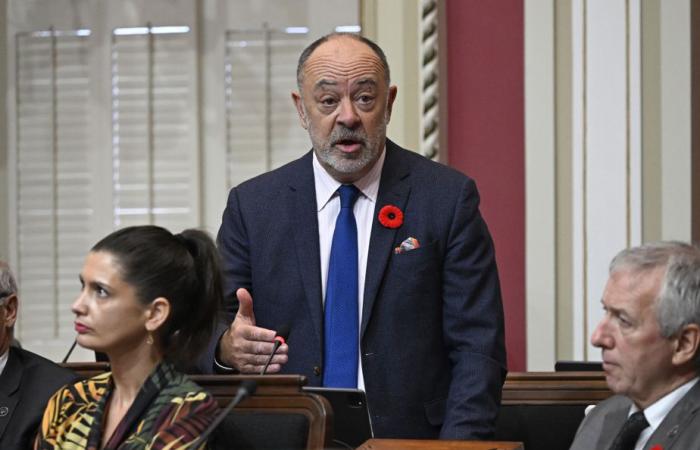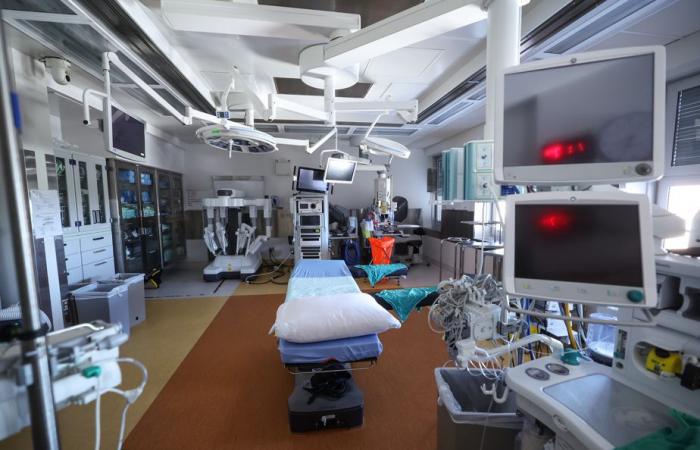(Quebec) Christian Dubé promises a gateway to the 1.4 million Quebecers who still do not have access to a family doctor or a family medicine group (GMF) by the summer of 2026. A wish which does not take reality into account, retort general practitioners.
Posted at 4:37 p.m.
Updated at 5:31 p.m.
What you need to know
- Christian Dubé presented on Thursday the results of his Health Plan, presented in March 2022. He admits that he is not yet where he would like to be, but is delighted with the reduction in the use of independent labor and compulsory overtime;
- The Minister of Health is making a new commitment, that all Quebecers will be cared for by a professional (doctor or IPS) by the summer of 2026;
- The success of its commitment is based on its already arduous negotiation with the Fédération des médecins omnipraticiens du Québec (FMOQ).
Furthermore, history repeats itself: Quebec will miss the next target of its surgical catch-up plan, “a file” which will become the priority of Santé Québec, indicated the Minister of Health. Christian Dubé took stock of his Health Plan, submitted in March 2022, on Thursday, recognizing that it is far from being an account in terms of access to the first line.
PHOTO JACQUES BOISSINOT, CANADIAN PRESS ARCHIVES
Quebec Minister of Health, Christian Dubé
However, the minister is making a new commitment. New measures, such as the creation of the First Line Access Center (GAP) and the addition of specialized nurse practitioner (IPS) clinics, allow it to “move to another stage,” he said. said. He is committed to ensuring that “all Quebecers have access to a health professional who knows them and can follow them over time” by the summer of 2026, just before the elections.
Essentially, Quebec is targeting Quebecers who are currently waiting to be registered with a GMF and those who are completely orphans – that is to say not on any list. The government estimates that this group represents approximately 1.4 million people. In his new formula, Christian Dubé promises that they will be registered with a “care environment” in their region – a GMF or a CLSC.
Each patient will then be cared for by a “reference doctor” or an IPS. They will nevertheless be able to consult other health professionals depending on their state of health, it is indicated. “This approach will lead us to the first line that we want to have in the coming years,” said the minister.
Ultimately, the GAP – which depends on a temporary agreement with the general practitioners’ union – will migrate to the new model. Quebec ensures that patients registered with a GMF will remain so and that Quebecers who have a family doctor will keep it.
The details of the mechanics remain to be clarified, indicated Mr. Dubé.
Furthermore, registering with a GMF or a family doctor does not guarantee getting an appointment quickly. Christian Dubé himself has recognized in the past pitfalls at GAP. However, he believes that the situation has improved. “The waiting time […] to get an appointment went from more than 100 hours to 36 hours,” he maintained.
Uncertain success
The success of its commitment is based on its already arduous negotiation with the Federation of General Practitioners of Quebec (FMOQ), admits the Minister of Health. “We need the doctors and the FMOQ union, as part of the negotiations that are underway, to be there as they were when we implemented the GAP,” he said. -he said.
The union did not show much enthusiasm on Thursday. “A realistic and coherent vision must be based on reality, and this reality is that currently, the majority of medical students prefer other specialties and that more than 2,500 family doctors are over 60 years old. . If nothing is done, the shortage will worsen,” wrote the FMOQ in a statement.
In other words, the union does not currently see how its members could offer more availability to care for more patients in the context of the shortage.
This new commitment also comes as the government plans to use the exemption clause to force new doctors to begin their practice in the public. On Thursday, Mr. Dubé also confirmed the information published by The Press in September wanting performance indicators such as access objectives to be “integrated” into the next framework agreement.
Missed target in surgery

PHOTO MARTIN CHAMBERLAND, LA PRESSE ARCHIVES
Some 10,707 Quebecers are currently waiting for an operation for more than a year.
Christian Dubé concedes that he will not reach the target of reducing the number of surgeries waiting for more than a year to 2,500 by December 31. As of October 19, there were 10,707 Quebecers on this list. Quebec had already missed its interim target, as of March 31. “This is probably the issue that bothers me the most,” said the minister, recalling that the figures were around 22,000 in 2022.
“We are dropping by around 250 per month, it’s not fast enough,” he said. He is counting on the new agreement with the FIQ to extend the activities of the operating rooms. Mr. Dubé added that he did not have a deadline for reaching his target for the moment and that this will become Santé Québec’s priority. “The most important file they have at the moment is catch-up surgery,” he added.
Earlier Thursday, François Legault told the Salon Rouge that it will take “years” to catch up on the backlog in surgery caused by the pandemic. As of October 19, a total of 161,148 people were waiting to undergo surgery.








